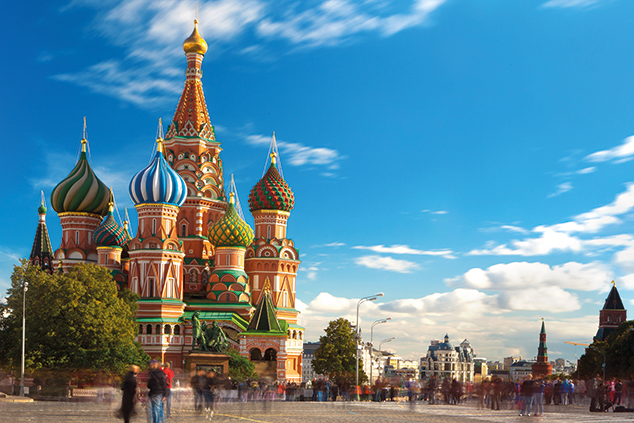
The 40% jump in the oil price so far this year has been treated with indifference by global investors, but, at the other end of Europe, it is very good news. While Russia has been diversifying its economy away from a dependency on oil and gas and insulating it from price volatility, hydrocarbons (eg crude oil and natural gas) still account for 10% of GDP, 21% of 2017 government revenue, and 58% of export earnings, according to Alexey Krivoshapko, a director of Prosperity Capital.
Under Russia’s tax system, 90% of the extra revenue from higher prices goes to the government, which accumulates the windfall in a stabilisation fund, mostly in foreign currency. This means that the benefit flows broadly into the Russian economy, rather than providing excess profits to energy firms.
In the World Bank’s ease of doing business survey, Krivoshapko points out Russia has climbed to 31st, alongside many EU members. Meanwhile, geopolitical concerns, US sanctions and capital outflows keep the rouble competitive. Matthias Siller, manager of the Baring Emerging Europe trust (LSE: BEE), believes these reforms will accelerate the growth rate of the Russian economy from 1.5% to 2.5%, helped by an emergence of entrepreneurial spirit, notably in the technology and agriculture sectors.
“Entrepreneurial spirit is helping the Russian economy”
At the same time, Siller believes in managing volatility by diversifying across the broader region. Although 59% of the £115m of BEE’s net assets is invested in Russia, 20% is invested in Poland, 15% in Turkey and smaller amounts in Hungary, Greece and elsewhere.
Growth in Poland reached 5% last year, bringing significant increases in real incomes and retail sales. Siller favours the banks, which are benefiting from demand for mortgages and for loans to developers, while their excess capital finances healthy dividend yields.
Turkey is in recession and its currency has fallen sharply, but Siller believes that the Turkish lira is now cheap, the current account is positive, and the economy has rebalanced. The portfolio includes mobile-phone operator Turkcell, and Tupras, an oil refiner close to the Aegean, which means it has good access to export markets.
Both have strong balance sheets, so they “can withstand economic and financial stress”, but “there are opportunities in many sectors”. Inevitably, Russian companies, especially the oil and gas producers, dominate the portfolio, with more than 10% invested in Lukoil, 8% in Novatek and 7% in Gazprom.
Prosperity is a fan of Lukoil, because of its “visible corporate governance improvements” and modest valuation – it trades at less than seven times earnings and yields nearly 6%, with dividends expected to rise sharply. Novatek, as one of Russia’s largest producers and exporters, benefits from growing demand for liquefied natural gas.
Putting politics aside
Nine percent of the portfolio is invested in Sberbank, the largest bank in Russia, trading on just six times earnings despite strong earnings forecasts. Exposure to the tech sector is provided by Mail.ru, Russia’s Facebook, and to high-tech engineering by automotive software developer Luxoft.
While media attention on the region focuses on politics, Siller is finding plenty of high-quality growing companies on reasonable valuations to invest in. As he points out, “emerging Europe has outperformed western Europe over one, three and five years, so there is a good story to tell”. With the shares yielding 4.3% and trading on a discount to net asset value of nearly 10%, the risks are well discounted.